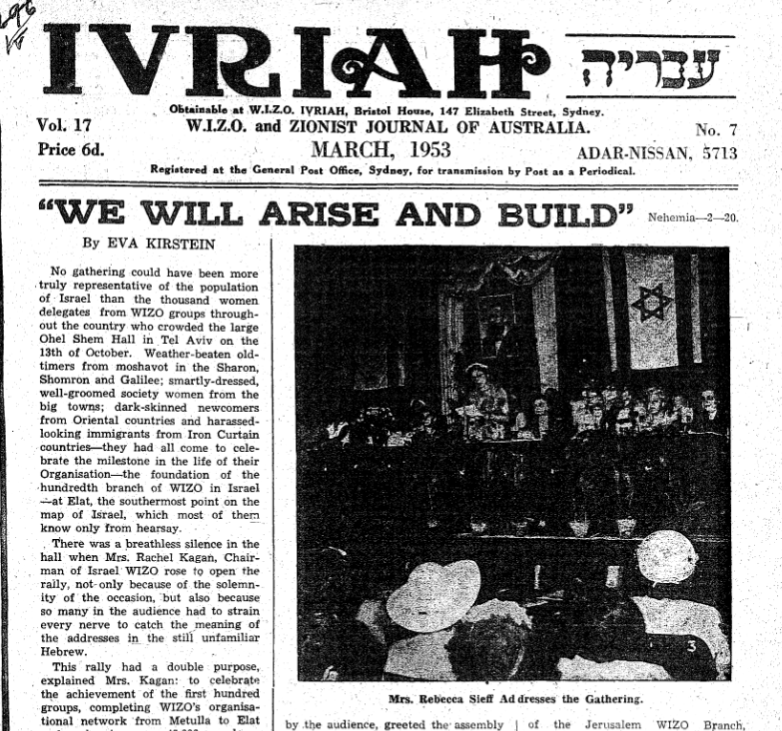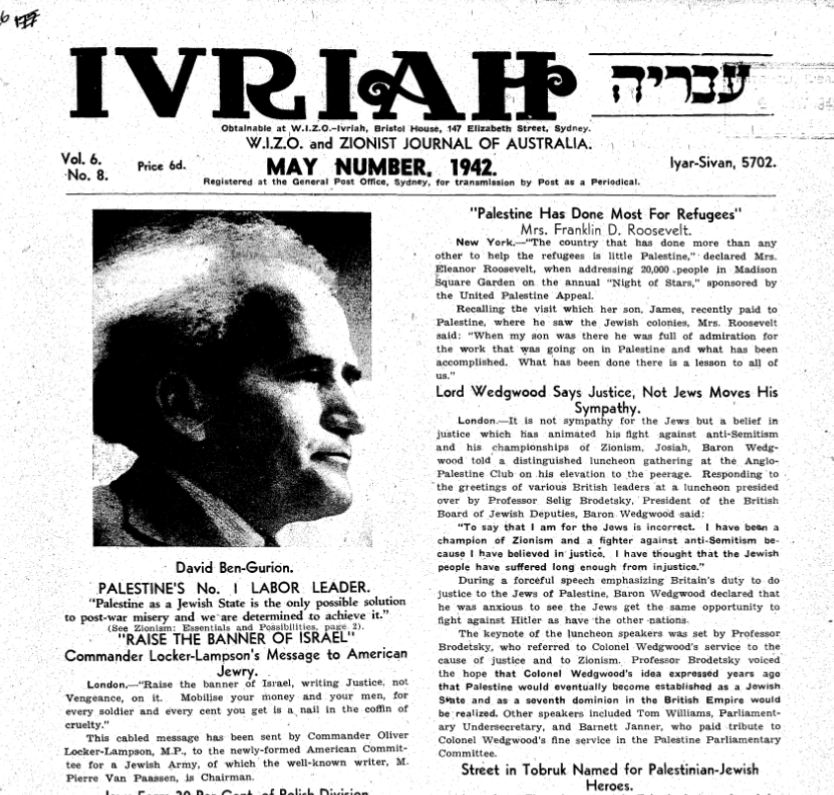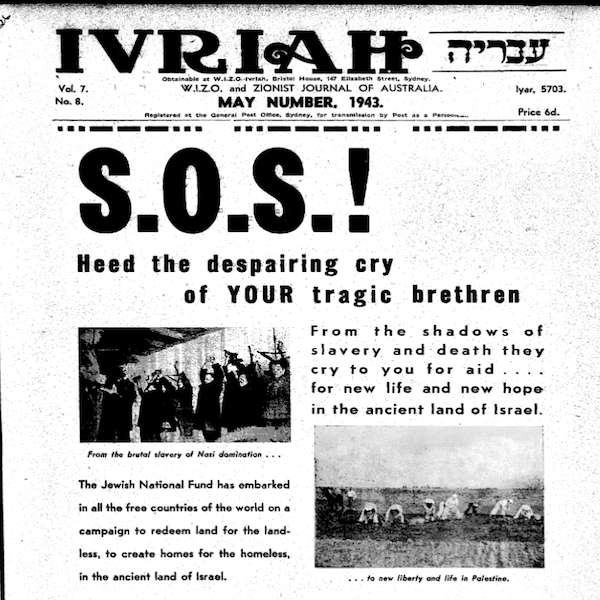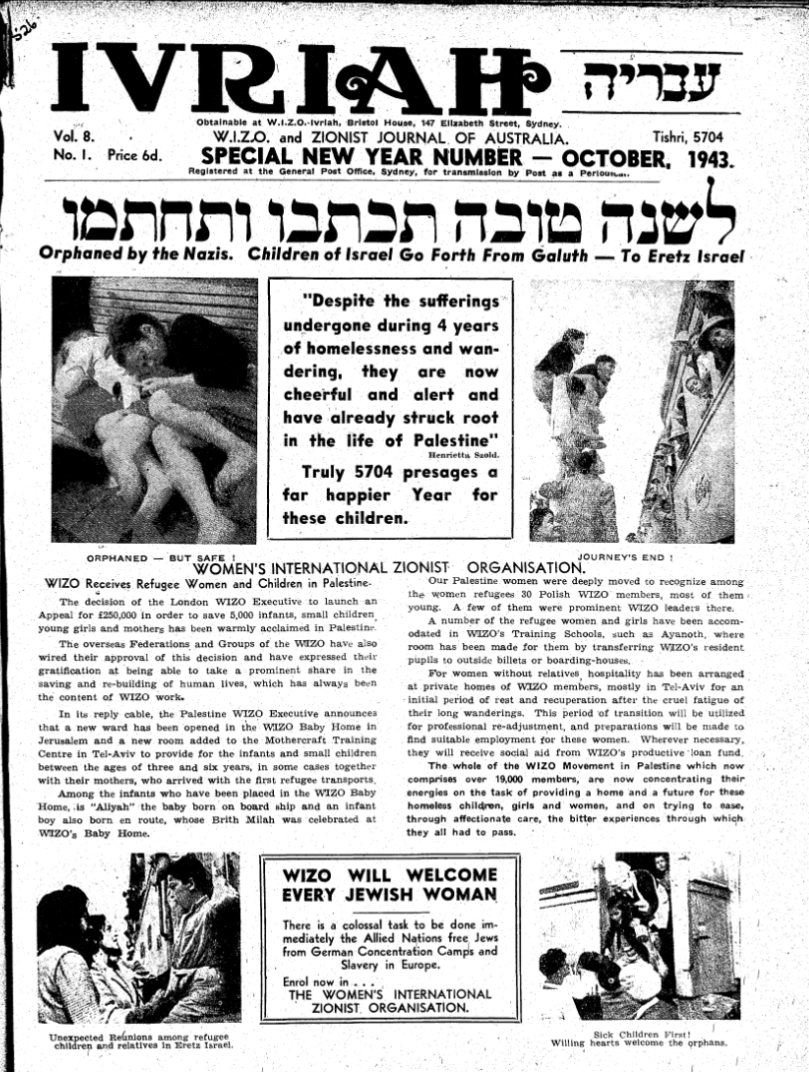Ivriah
The first issue of IVRIAH in March 1935 announced:
IVRIAH has come into existence for more than one purpose. The members of IVRIAH are desirous of continuously helping the great Ideal the Restoration of Eretz Yisroel. IVRIAH is desirous of helping the cause of Hebrew Education.
Rieke Cohen (nee Selig), was a key Zionist leader (1887-1964). She was a foundation member of the National Council of Jewish Women in 1923, but following a conflict with Dr Fanny Reading, she left the Council in 1934. In January 1935 she called a public meeting to form a new organization, Ivriah, with the aims of supporting the development of a Jewish homeland in Palestine and promoting Jewish education.
She bought a property at 640a Old South Head Road in 1936 and converted it at her own expense into the Ivriah headquarters. This centre served as the first place of worship of the Mizrachi congregation.
In January 1937 Ivriah was directly affiliated with the Women's International Zionist Organisation (WIZO) and from 1939 was officially called the Australian Federation of WIZO.
In March 1935, she began a monthly journal, also named Ivriah, which she continued to publish until her death in 1964. The publication covered a wide range of topics, focusing not only on developments of the Australian Zionist movement, but also on key events across the Jewish world. As such, it is a rich resource for Jewish historians and genealogists.
Suzanne D. Rutland, 'Cohen, Rieke (1887-1964)', Australian Dictionary of Biography, National Centre of Biography, Australian National University. First hardcopy edition published in 1993, .
The entire 335 monthly issues of Ivriah, spanning from March 1935 to August 1964, have now been digitised from the microfilm created from copies held by the State Library of NSW.
The scanning to microfilm probably took place well before 2000. Notwithstanding the use of bitonal scans, the Optical Character Recognition is far from perfect, accounting for some loss of quality in the digital copies.
This production in 2022 was made possible with the support of WIZO (NSW) and a Royal Australian Historical Society Cultural Grant.





